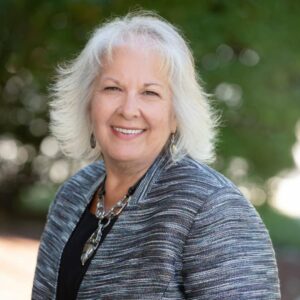Providers must change the language of aging, speakers say
 Aging services providers can—and should—lead efforts to alter negative perceptions related to age and aging, LeadingAge President and CEO Larry Minnix maintains. “Perception is reality—until we change it,” Minnix told those attending the Oct. 19 opening session of the organization’s annual meeting, which had the theme “Redefining Age.”
Aging services providers can—and should—lead efforts to alter negative perceptions related to age and aging, LeadingAge President and CEO Larry Minnix maintains. “Perception is reality—until we change it,” Minnix told those attending the Oct. 19 opening session of the organization’s annual meeting, which had the theme “Redefining Age.”
Television shows and commercials, films, greeting cards for milestone birthdays—all promote images and language that perpetuate the view of older adults as weak, dependent and in declining health, he said, and they limit, stereotype and isolate them.
“Our language of contemporary healthcare often, unfortunately, doesn’t help with the image and language,” Minnix added in his speech.
In an effort to change perceptions, he said, the World Health Organization now refers to aging as “the life course,” he noted. And LeadingAge itself, D. Scott Crabtree of the organization’s Education Planning Committee said, “would like to see a shift from ‘person-centered care’ to what we like to call ‘person-centered engagement’—in other words, finding and encouraging the passion that defines each of us.”
LeadingAge Board Chair David Gehm added: “We need to look beyond the number and recognize that age, something all of us do every day, is a process. We each age with experiences and emotions unique to who we are, not where we fall on the age spectrum.”
Other ways that senior living housing and services providers can help change perceptions related to aging, Minnix said:
- Through a formal effort such as a committee or through informal efforts, ask staff, board members, residents/clients and representatives in your community and state to think about “What would a good old age look like in our community, and how do we ensure it for an aging population?”
- Plan activities such as festivals, discussion groups or graffiti walls to explore the topic.
- Record the responses on video and share them via social media, or publish a book of stories that are revealed through the process.
- Hold intergenerational discussions in the community about the uniqueness of every age of life. “How would children view elders, and what would elders say to children?” Minnix asked.
Providers such as Mather LifeWays, Asbury, John Knox Village, Mt. San Antonio Gardens and CJE SeniorLife already are leading efforts to change perceptions through the language they use, he said, incorporating words such as “successful” and “strength” into their program names.
CCRCs
LeadingAge, Gehm said in remarks Oct. 20, continues to work with Mather LifeWays to develop a new name for continuing care retirement community (CCRC). Minnix originally hoped to share ideas with members at the annual meeting, but, Gehm said, “We still have much work ahead of us.” Marketing professionals are now working with others on the “NameStorm” team, examining ideas generated through brainstorming activities at various member sites.
The concept of the CCRC itself remains strong despite economic challenges facing the industry, Minnix told members of the press in a meeting Oct. 20. “It’s now the longest-standing, most successful managed care plan in the country,” he said. “People don’t think of it that way, but it is.”
Future success, Minnix added, will call for offering a variety of financial models to give people flexibility and make CCRCs appealing to a wider economic demographic. But “it’s a concept with a proven track record,” he said.
Related content:
Effort seeks new name for CCRCs
CCRC renaming effort continues
I Advance Senior Care is the industry-leading source for practical, in-depth, business-building, and resident care information for owners, executives, administrators, and directors of nursing at assisted living communities, skilled nursing facilities, post-acute facilities, and continuing care retirement communities. The I Advance Senior Care editorial team and industry experts provide market analysis, strategic direction, policy commentary, clinical best-practices, business management, and technology breakthroughs.
I Advance Senior Care is part of the Institute for the Advancement of Senior Care and published by Plain-English Health Care.
Related Articles
Topics: Articles , Executive Leadership , Leadership











